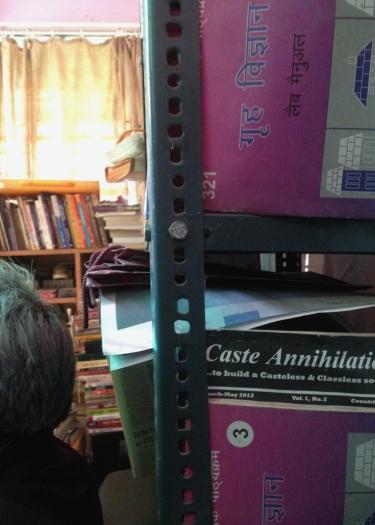Casted Lives: Biographic and Ethnographic Perspectives
- Date in the past
- Tuesday, 14. January 2025, 17:15 - 18:45
- CATS Auditorium, building 4010, room 010.01.05
- Prof. Dr. Johannes Quack, University of Zurich

Address
CATS Auditorium, Building 4010, Room 010.01.05, Voßstr. 2, 69115 Heidelberg
Event Type
Lecture
It has often been said that in many parts of South Asia, belonging to a religious and caste group is understood as something given, inescapable and a moral necessity. My current book project seeks to explore how and why this vague but palpable sense of belonging is maintained and transformed in contemporary India. To do so, it combines biographic and ethnographic perspectives on the lives of two individuals: Shriram Gehlot (born into a poor Chuhra/Dalit family in western UP) and Ambika Goswami (born into a rich Brahmin family in northeastern India). This paper focuses on the problem of a “split personality”, not from a psychological but from an anthropological (sociological and philosophical) perspective. It analyses how Shriram’s and Ambika’s gradual alienation from their family and community went hand in hand with their attempts to live in agreement with themselves.
Johannes Quack is an associate professor of Social Anthropology at the University of Zurich. His academic interests revolve around the anthropology of ethics and the interdisciplinary study of religion, focusing on Hindu traditions, caste, ritual theory, atheism, secularity, and nonreligion. Chiefly, he has researched diverse positions deemed alternative or oppositional to dominant religious beliefs and practices, i.e. individuals and groups who do not conform to or who challenge religio-social norms and normativities. Quack also worked on the ways in which people navigate between different therapeutic traditions, particularly between religious and biomedical (psychiatric) treatment regimes in India. Methodologically, he complements long term ethnographic fieldwork with biographic approaches to research how people constantly answer through their everyday life not only the question “What should I/we do in the here and now?” but also the more general and often implicit question “What kind of life should I/we live?”.